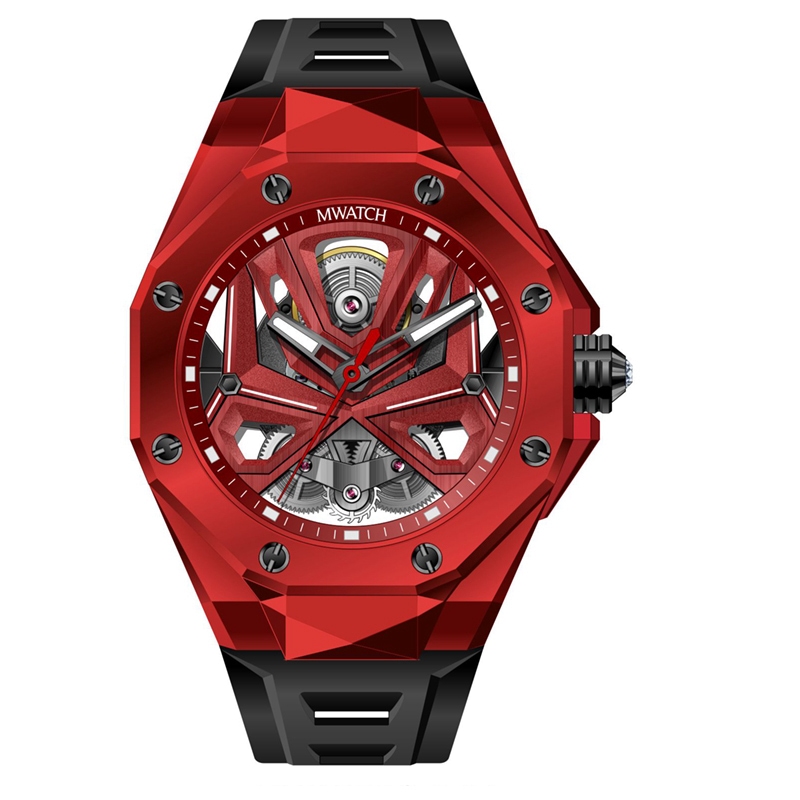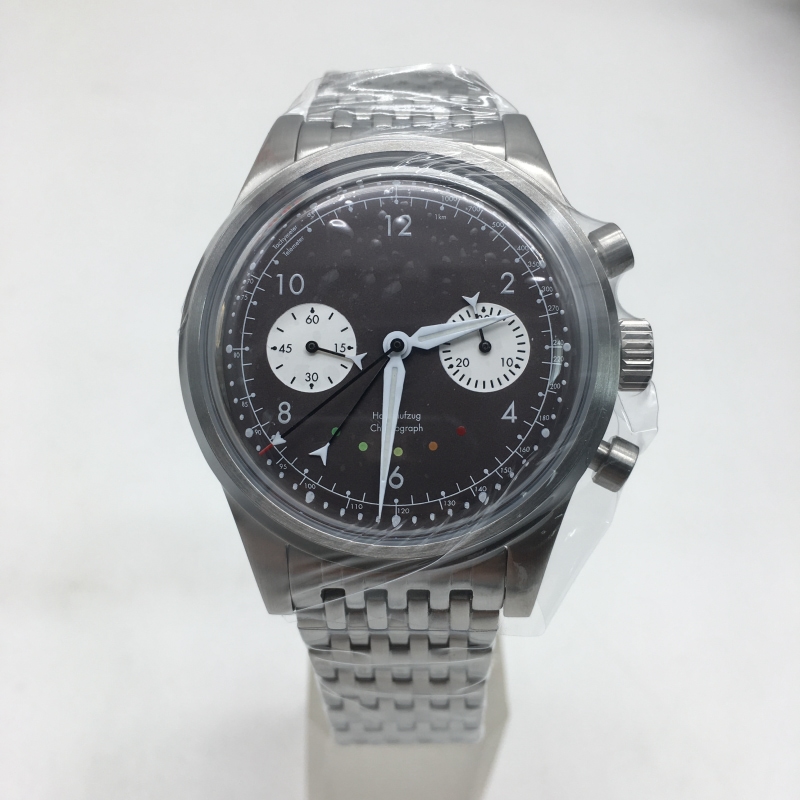Every product is carefully selected by our editors. If you buy from a link, we may earn a commission.
These are the rugged watches that define one of today's most popular watch categories. Men Watch Mechanical Automatic

Most watch enthusiasts would agree that field watches are some of the coolest, most legit and historically significant watches ever. They're also one of the most fun and popular modern watch categories.
But what exactly defines a field watch? Those enthusiasts might not as readily agree.
A field watch might be one of military origin — or one generally meant for outdoor use in hiking and camping. In any case, it's typically unfussy, legible, simple and small. It should also be tough.
Many feature a 24-hour military time track toward the inner dial. But as there's no specific feature set that defines them, the only way to get a handle on what makes a great field watch is to consider the models that have become iconic. Here are eight, readily available new or on the preowned market.
Produced By: Bulova, Waltham, Elgin Years Produced: 1940s
It's been called "the watch that won the war" and the "hack watch," and the military spec A-11 is one of the watches that established the field watch as we know it today (though it also served as a pilot's watch). Produced for WWII allied forces in great quantity, they had only what a soldier would need: simple but accurate time telling, strong legibility, compact sizing — and little of the elegant nature popular among civilian watches of the time. It also had one other important feature: the ability to stop the seconds hand while setting the time ("hacking," now taken for granted in modern watches), allowing for precise coordination of military actions.
Produced by American companies Bulova, Waltham and Elgin, you can get a modern remake from Bulova today, albeit in more modern sizing than the original's 32mm diameter. Of course, its influence can be felt in many other watches, as well.
Produced By: Buren, Cyma, Eterna, Grana, Jaeger-LeCoultre, Lemania, Longines, IWC, Omega, Record, Timor, Vertex Year Produced: 1945
The name Dirty Dozen, taken from a WWII film, was bestowed by collectors on (not necessarily identical) watches made by 12 Swiss manufacturers for the British Ministry of Defense. It's also known as the W.W.W, for "Wrist Watch Waterproof," as was stamped into the watches' casebacks.
From the same wartime era, its features aren't too different from the A-11 — these are simple, time-only military watches, after all. It's become a well known "holy grail" for collectors to try and amass examples from all dozen brands, which has led to even greater awareness of these watches.
Modern companies also make their own versions, and you can get high end examples today from the likes of resurrected brands like Vertex and Timor.
Produced By: Hamilton, Marathon, Benrus Years Produced: 1967-1986
Fast forward to the 1960s (and into the '80s). These jumbles of letters and numbers refer to a couple of watches made mostly for the American military. Today the GG-W-113 lives on in probably the most popular modern field watch, the Hamilton Khaki Field — though they were made by various companies.
It wasn't the first, but it's one of the best known watches today to feature the distinctive inner 24-hour track. In fact, unless you're a vintage collector, it might be more accurate to say that the Hamilton Khaki Field is the true icon even more so than the vintage military piece it's based on.
Read our full review of the Hamilton Khaki Field.
Produced By: Hamilton, CWC Years Produced: 1973-76
Like other watches mentioned here, W-10 refers to a military specification rather than a single watch design. So, there are examples that can take different forms.
Some versions of the W-10 had the C-shaped case that makes them stand out among the many round watches you see here. As we've seen elsewhere, field watches often overlapped with pilot watches, and when the same watch was issued to the British air force it was known as the 6BB. This is why its modern reissue is in Hamilton's Khaki Pilot collection, but you can also find reissues from the likes of MWC and CWC.
Produced By: CWC, Precista Years Produced: 1980-2000s, present
The G10 is notable as the first quartz watch produced for the British military, and it was made in great quantities primarily by CWC. Early models are nicknamed "Fatboy" by collectors, while later versions made use of quartz's ability to offer very thin watches. These make for fun and affordable vintage Ebay buys, but CWC offers a modern version today — as well as one with an automatic movement. (Note: The NATO strap's "G10" specification isn't specifically related to this watch, even though it's typically worn on a NATO.)
Produced By: Seiko Years Produced: 2000s
This list isn't only about historical watches. We also want to acknowledge field watches that have become iconic in relatively modern times, even if they weren't specifically made for the battlefield. The Seiko 5 SNK is a watch we've often discussed on Gear Patrol as it's been many a collector's first mechanical watch due to its dirt-cheap price but surprising value. The brand today has reintroduced a model in tribute to the SNK in its modern Seiko 5 Sports line (the SRPH watches) but you can still find the no-longer-produced SNK on the likes of Amazon — still for a great bargain.
Produced By: Rolex Years Produced: 1953-present
While nearly every other watch on this list is of military origin or style, people will yell at us if we don't include the Rolex Explorer. Conceived as a mountaineering or adventuring watch, it's close enough in its design and traits to field watches — and it certainly qualifies as iconic.
Rolex introduced the explorer after it sponsored Tenzing Norgay and Edmund Hilary's climb to the top of Mount Everest in 1953. Call it an "adventuring watch" or whatever you want, but it's a milestone that helped broaden the definition of a field watch as watches for outdoor sports became more popular in mainstream culture.
Produced By: Seiko Year Produced: 1959-1960s, 1995-present

Stainless Steel Watches Oem Some might not group the Seiko Alpinist (or Rolex Explorer) among field watches, which are overwhelmingly rooted in the military. But what else can you call it? A mountaineering watch, maybe, as it was conceived in the 1960s for "Japanese mountain men," according to the brand — and you can see that in its design and robust build. It is another non-military watch that's become something of an icon, especially in its relatively modern 1995 form, and it shows how much design variance is possible within the genre.